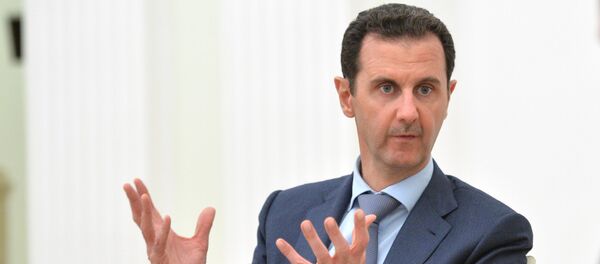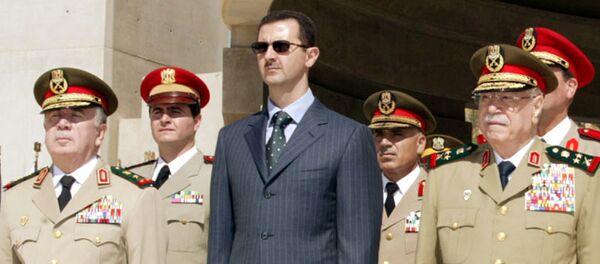Prior to the eruption of the civil war, Syria, led by Bashar al-Assad and his late father, Hafez Al-Assad, fought or was indirectly involved in the majority of wars in the Middle East.
Syria was a staunch backer of Palestine in its fight against Zionism and the Israeli state, forming a core component of its wider foreign policy.
As well as providing political support, aid and sanctuary to hundreds of thousands of Palestinian refugees, Syria also went to war with Israel on a number of occasions, including the Six-Day War in 1967.
As a result of the conflict, Israel was able to gain control over parts of the Golan Heights, located in southern Syria, and has illegally occupied the territory since, although Syria did briefly regain control over the area in 1973 as part of the Yom Kippur War.
The Syrian government's foreign policy has exhibited pragmatism, especially during the conflict in Lebanon; Syria temporarily suspended its support of some Palestinians militias, such as the Palestinian Liberation Organization (PLO), due to its massacring of Maronite Christians in Lebanon.
The Syrian Army ultimately intervened in the war, deploying tens of thousands of troops to fight against elements of the PLO, and the Israeli Defense Forces (IDF).
"If I got nothing else from my meeting with Frangie, Chamoun and Gemayel, it is their clear, unequivocal and unmistakeable belief that their principal hope for saving Christian Necks is Syria. They sounded like Assad is the latest incarnation of the crusaders," a US diplomat said in 1976, according to WikiLeaks.
Syria subsequently occupied the entirety of Lebanon, to reduce the influence of uncontrollable Palestinian groups, thus protecting Lebanon's Maronite Christian population. Syria later withdrew from Lebanon in 2005 as a result of the Cedar Revolution, which was sparked by the assassination of the former Lebanese Prime Minister, Rafik Hariri.
The formation of Syria's strong political ties with Iran is often incorrectly assumed to be based on similarities between the religions of the Iranian government, and President Hafez al-Assad.
In actuality, religion had no bearing on the matter, and isn't the reason for Iran's continued support to Syria throughout its ongoing civil war.
Syria's decision to side against Saddam Hussein in the Iran-Iraq War, in which he attempted to invade Iran, signaled the inception of cooperation between the two nations.
In a bid to reduce Saddam's ability to fund the invasion of Iran, Syria closed the strategic Kirkuk-Banias crude oil pipeline. According to estimates, this reduced Iraq's oil revenue by around US$5 billion per month, putting Syria at odds with one of the most powerful nations in the region.
"There will come a day when Iran will stand by us when all the Arabs will be conspiring against us," Hafez al-Assad famously said, justifying his support of Iran.
It can be argued that the raging war in Syria stands testament to his statement, which was made decades ago.
Syria's foreign policy has been fairly consistent, with the Arab state maintaining strong ties with Iran, the Russian Federation, and remaining steadfastly opposed to Zionism.
President Assad has also proven to be willing to make necessary adjustments, with the Syrian Army's intervention in Lebanon against an ally serving as the best example of his pragmatic and adaptable approach.
Such pragmatism is necessary to end the crisis in Syria; backers of the armed opposition need to accept that only President Bashar al-Assad and his secular government are able to end this war in a timely-fashion, with a satisfactory outcome.
There has been some indication of this occurring, with France, one of Assad's strongest critics, softening its stance as a result of its newly elected president's better understanding of the situation.
The views expressed in this article are solely those of the author and do not necessarily reflect the official position of Sputnik.






